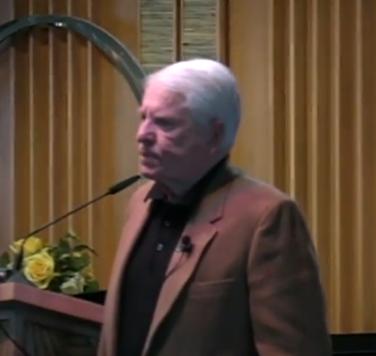
Phil Doe, fractivist
Little more than two weeks after Gov. John Hickenlooper and liberal U.S. Rep. Jared Polis came to a deal to pull the punitive anti-fracking initiatives that Polis was pushing, it would appear that the truce ended. That didn’t last long. The question is – did Polis reneg on the deal or are fractivists out of his control?
On August 18th, Phil Doe (the guy who called Loveland opponent BJ Nikkel a Nazi and a dog) and Barbara Mill-Bria filed a petition with the Office of Legislative Council for a measure to be placed on either the 2015 or 2016 ballot that is scarier than the initiatives that the state just scrapped. It’s a constitutional amendment that would create the concept of “Public Trust Resources”, making clean air, water, and natural resources public commodities. The measure would place the burden of proof on companies to prove that energy development activities are safe. Translation: Even if there is no proof that fracking is unsafe (and currently, there is none), companies can be liable for damages if an “action or policy has a suspected risk of substantially impairing public trust resources”. Companies must first prove that the activity is safe even “in the absence of scientific consensus“. (the Peak‘s emphasis)
From the initiative:
IF AN ACTION OR POLICY HAS A SUSPECTED RISK OF SUBSTANTIALLY IMPAIRING PUBLIC TRUST RESOURCES, IN THE ABSENCE OF SCIENTIFIC CONSENSUS THAT THE ACTION OR POLICY IS HARMFUL, THE BURDEN OF PROOF THAT IT IS NOT HARMFUL FALLS ON THOSE PROPOSING TO TAKE THE ACTION. THE STATE SHALL SEEK NATURAL RESOURCE DAMAGES FROM THOSE ENTITIES THAT CAUSE SUBSTANTIAL IMPAIRMENT OF PUBLIC TRUST RESOURCES AND USE SUCH FUNDS TO REMEDIATE THE HARM.
Essentially, this is asking the oil and gas industry – or any other industry for that matter – to prove that something doesn’t exist. Additionally, the concept of “public trust” laws essentially takes a nuclear bomb to any sort of property rights – all the land is everybody’s right, so anybody can sue to protect it.
And, here’s another really scary part of this proposed initiative. It would make executives criminally liable if they “manipulate data” – think of this as Sarbanes-Oxley for the oil and gas industry. From the initiative:
ANY PERSON, CORPORATION, OR OTHER ENTITY FOUND TO BE MANIPULATING DATA, REPORTS, OR SCIENTIFIC INFORMATION IN AN ATTEMPT TO UTILIZE PUBLIC TRUST RESOURCES FOR PRIVATE PROFIT SHALL BE REFERRED FOR PROSECUTION FOR ANY CRIMINAL OFFENSES THAT MAY APPLY IN ADDITION TO OTHER PENALTIES THE STATE MAY IMPOSE, INCLUDING LOSS OF CHARTER TO OPERATE IN THE STATE.
But all of this detail brings us back to our original question – did Polis reneg or are the fractivists out of his control? Here’s what Loveland Energy Action Project spokeswoman, B.J. Nikkel told The Observer about Polis not getting his hands dirty in Loveland:
“I find it rather disingenuous that he supposedly takes no position, because it’s more than obvious to everyone in Colorado that he has been spending his fortune encouraging other communities to enact precisely the same ban that Loveland now faces.”
Polis claims that he wasn’t involved with the Loveland effort which featured Doe (see above), yet a review of the groups involved show that’s unlikely. From Big Green Radicals:
Anti-fracking activists branded this fight as a “grassroots” quest led by local Loveland citizens, but the usual big green suspects were actually behind the campaign. The Sierra Club used its vast resources to run an aggressive ground game endorsing the fracking ban and working its get-out-the-vote machine. Also heavily involved in the campaign was Frack Free Colorado, a “local” group founded by New York-based celebrities. Even the supposedly hyper-local group Protect Our Loveland used the help of Local Control Colorado (which is dominated by Washington D.C.-based Food & Water Watch).
Guess how many of these organizations are the beneficiaries of Polis’ generous funding? Decide for yourself whether Polis held up his end of the bargain or if he’s lost control of his base.

Let's see, presumed damages from an unprovable thought crime, tells me the measure's sponsors are probably a little deep into the MJ.